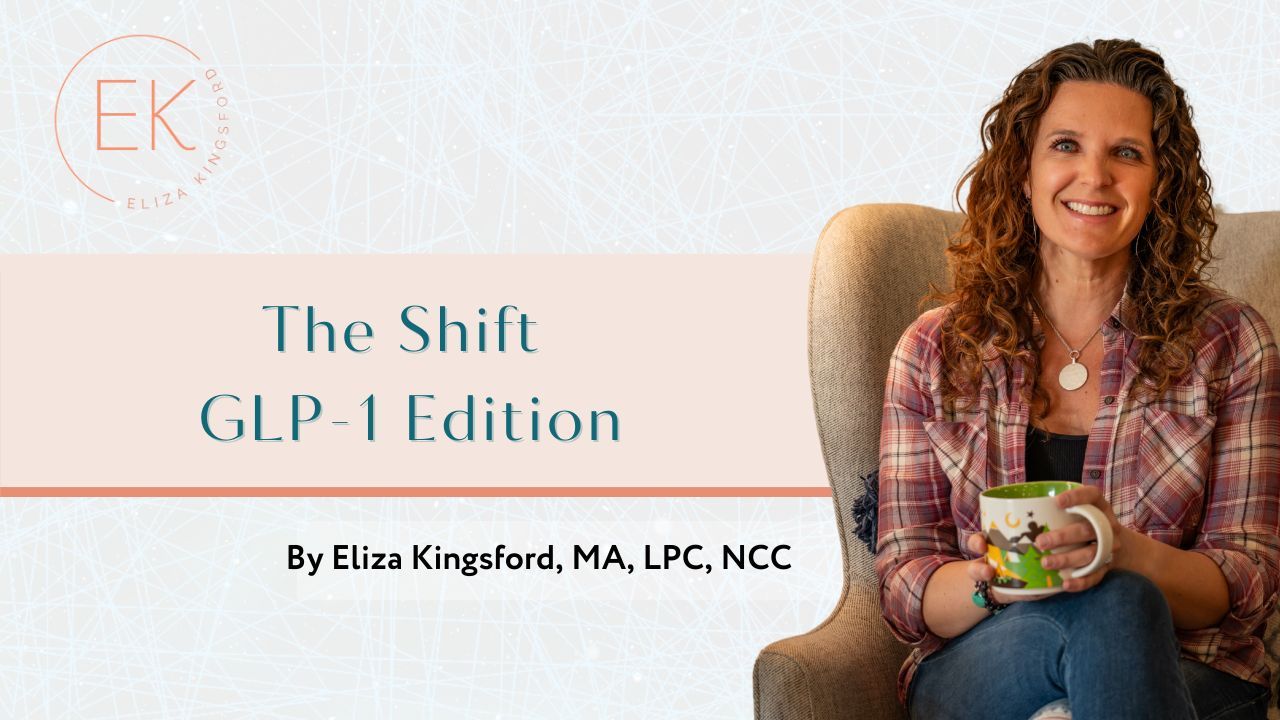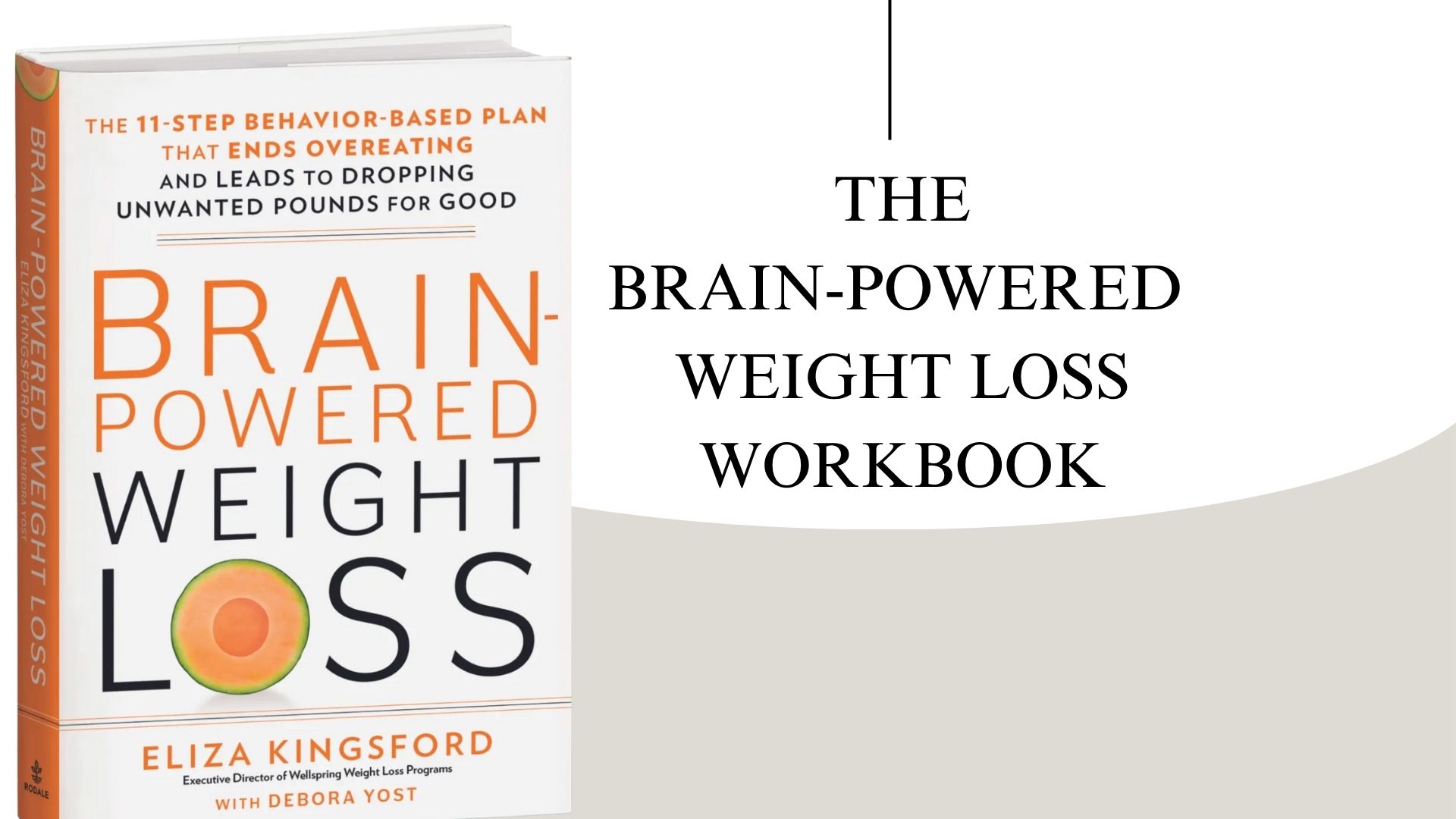
Why Dieting Feels So Hard: Understanding the Mental Load That’s Sabotaging Your Weight Loss Goals
Aug 07, 2025“Why can’t I just stick to the plan?”
It’s a question I get nearly every day from clients, podcast listeners, and people who feel utterly defeated in their weight loss efforts.
If this sounds like you, I want you to know something crucial:
There’s nothing wrong with you.
In this post, I’m going to unpack a hidden reason why dieting feels impossibly hard—and it has nothing to do with willpower. It’s called mental load, and it’s draining your ability to follow through, no matter how badly you want to.
Let’s dive in.
What Is Mental Load, Really?
Mental load isn’t just a buzzword—it’s the emotional and cognitive burden of managing all the “invisible” responsibilities in your life. You know how you always know how much milk is left in the fridge, when your kid’s next doctor's appointment is, how much laundry detergent you have AND that it’s your mother-in-law's birthday next week?
THAT is mental load.
It’s remembering to get the teacher appreciation gifts, managing your child’s big emotions after a rough day, anticipating your partner's bad mood after a tough meeting at work and planning tomorrow’s carpool—all at once.
It’s the behind-the-scenes labor that keeps your world running.
Sociologically speaking, women often carry a heavier share of this mental load. Not always—but often. And that matters because it deeply impacts your energy, your attention, and yes, your ability to stick to a diet.
The Battery Metaphor: Your Daily Capacity
Think of your brain like an iPhone battery. Every task you take on—every decision, emotion, to-do item—drains your charge just a little.
Now imagine starting your day with a full battery (if you’re lucky enough to get good sleep - don't even get me started about perimenopause and beyond). As the day goes on, mental load slowly drains that battery: work meetings, school lunches, dinner plans, managing emotions—yours and others’.
Then, on top of all that, you decide to diet. Seems simple enough, right? But dieting is not just about swapping out meals. It adds a whole new layer of decisions and stress:
- “Do I have the right groceries?”
- “Will my family eat this?”
- “What happens if I eat off-plan?”
- “Do I even like this food?”
Every one of these thoughts is a new demand on your already depleted mental energy.
Dieting Increases Your Mental Load
Here’s the kicker: when your battery runs low, your brain and body are wired to step in and take care of things. The most efficient way to do this is to click you into autopilot. It’s learned over time that food is your quick fix, your coping strategy, your go-to. It’s your autopilot.
Ever notice that it’s MUCH easier to “stick to your plan” at the beginning of the day versus at the end? Or when you’re tired, stressed, overwhelmed, angry or burnt-out?
That’s because your battery has drained and autopilot has kicked in.
So what happens?
The act of dieting—which increases your mental load—triggers the very behaviors you’re trying to avoid. Why? Because when you're overwhelmed, your brain reaches for your easiest coping mechanism: food.
And then we blame ourselves. We call it a lack of willpower. We think we're lazy or broken. But none of that is true.
You’re simply overloaded.
The Willpower Myth
For decades, diet culture told us we just need to want it more. Push harder. Stick to the plan.
But what I’ve seen over 20 years of working with real people is that this approach fails most of us, not because we’re not trying hard enough—but because we’re ignoring how the brain and body actually work.
Willpower isn’t endless. It’s a resource that gets used up—especially when you’re managing a thousand other things. And especially when dieting adds even more to your mental load.
Why “Successful” Dieters Look Different
You might be wondering: “But I see other people around me who can stick to their plan. Why can’t I do it?”
Here’s the truth: the fitness influencers you see online who seem to eat perfectly AND juggle their busy lives? Most of them are not completely overhauling their lifestyle. They’re refining an already consistent way of eating and moving. Their habits are already in place. Dieting is a tweak—not a massive shift.
That tweak doesn’t overload their mental load. It doesn’t drain their battery the way a full-on lifestyle overhaul would.
So What Do We Do Instead?
First, stop blaming yourself. This isn’t about being weak. It’s about being aware.
You can’t push through a drained battery with positive affirmations or guilt. You need a strategy that works with your brain and body—not against it.
That starts by reducing your mental load, not adding to it:
- Master the fundamentals: Build small, sustainable habits over time. Don’t overhaul—refine.
- Stop chasing perfection: Done is better than perfect. Consistency beats perfection every time.
- Create a lifestyle, not a temporary fix: Your “maintenance” weight is built on how you eat, move, and recover most days—not what you do during a 30-day challenge.
- Learn your nervous system: Understanding how your body handles stress will change how you approach food forever (stay tuned for the next episode—we go deep on this!).
The truth is, dieting doesn't fail because you lack discipline. It fails because it's not designed to account for the mental load you’re already carrying.
When your brain is running on empty, it doesn’t want a salad—it wants safety, comfort, and energy. And that often looks like chips, cookies, or fast food.
If we want sustainable change, we have to stop asking, “How do I stick to this plan?” and start asking, “How can I create a plan that works with my life, my brain, and my bandwidth?”
There’s a better way. And it starts with ditching the guilt and embracing awareness.
What’s Next
If this message resonates, if you’ve realized your weight struggle runs deeper than diets—it’s time to heal what’s really underneath. I want to personally invite you to watch the Master Your Weight Loss Workshop for yourself - free!
This isn’t another plan. It’s a shift in identity. And for thousands of women, it’s the beginning of freedom.
👉 You can watch by clicking this link here
🎧 Want More Like This?
If you're ready to go deeper into behavior change, emotional regulation, and sustainable weight loss, don’t miss The Brain Powered Weight Loss Podcast, hosted by me - Eliza Kingsford.
Each episode breaks down the neuroscience behind food patterns, cravings, and mindset shifts — so you can finally understand why you get stuck, and what to do about it.
Click here to start listening now
💬 Let’s Keep the Conversation Going
If something in this post resonated with you, you're not alone — and you don’t have to figure it out alone either.
As a licensed psychotherapist, behavior change specialist, and expert in the neuroscience of lasting transformation. I've helped thousands of people, regulate their nervous systems, and finally gain control over food and their bodies — not through willpower, but through proven, science-backed methods - offering a path to sustainable change that actually works - not just for your body, but for your whole self.
👉 Ready for deeper support? I welcome hearing from you. Send me an email: [email protected].
And if you're looking for a safe place to heal your relationship with food, body, and self — you're in the right place. I'm so glad you’re here.


